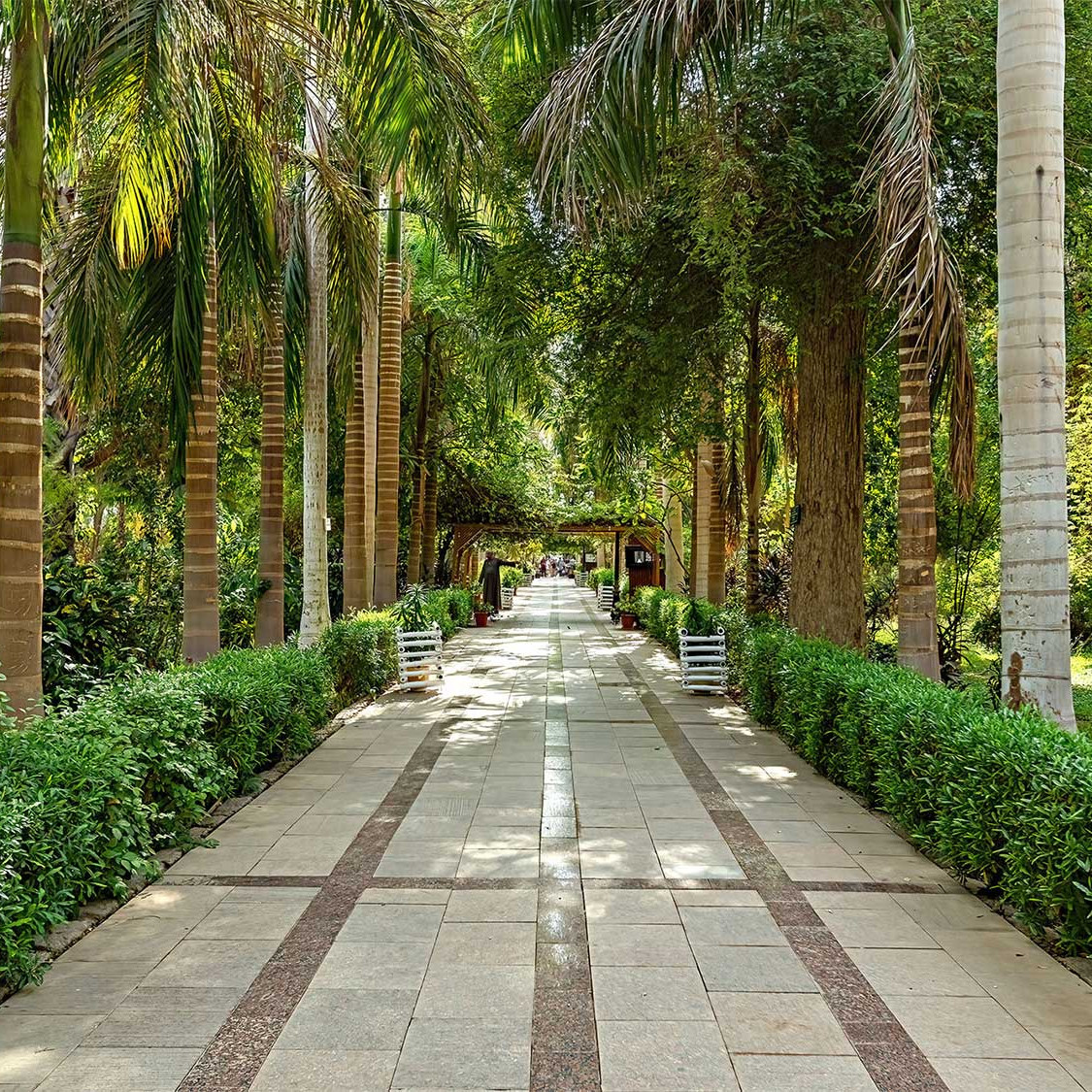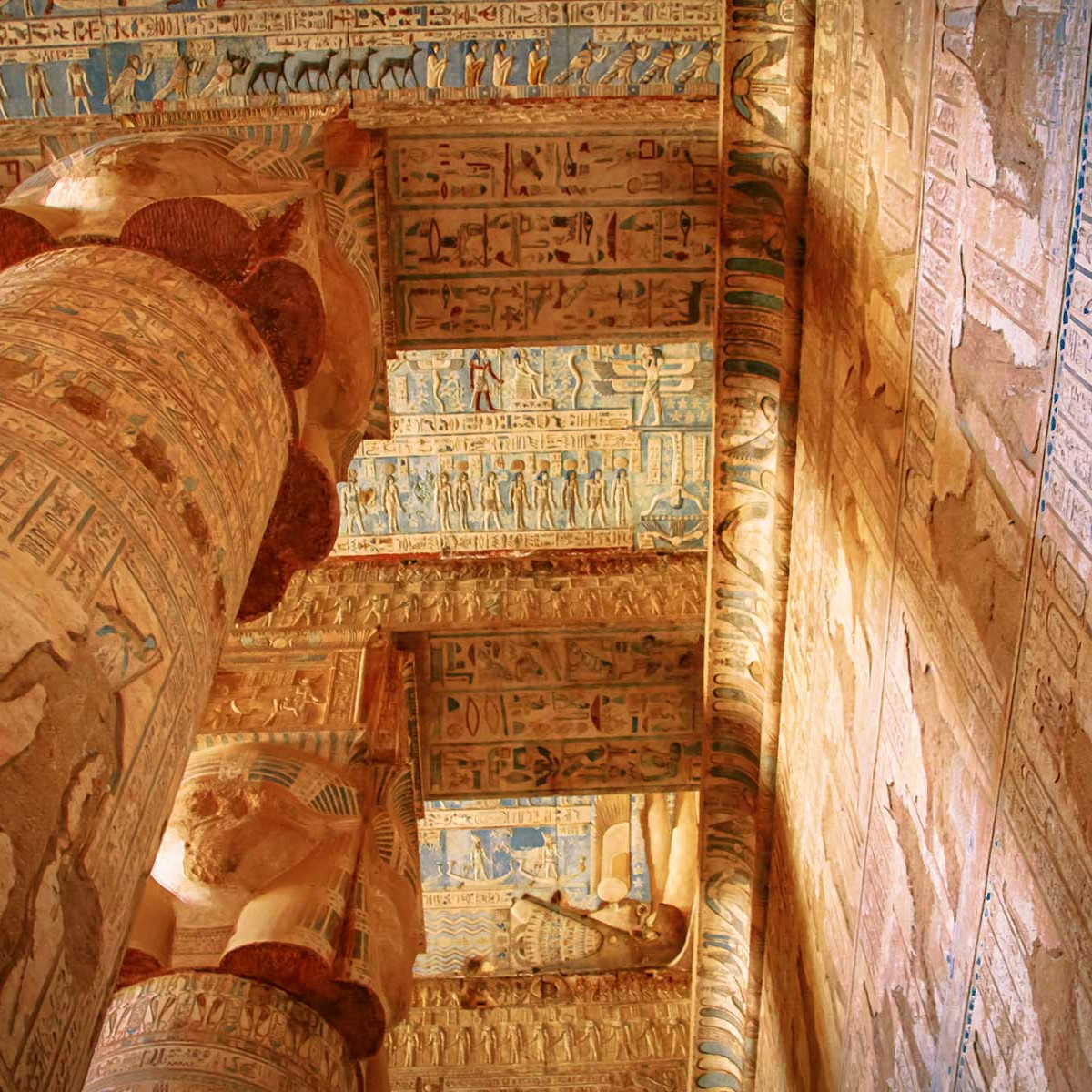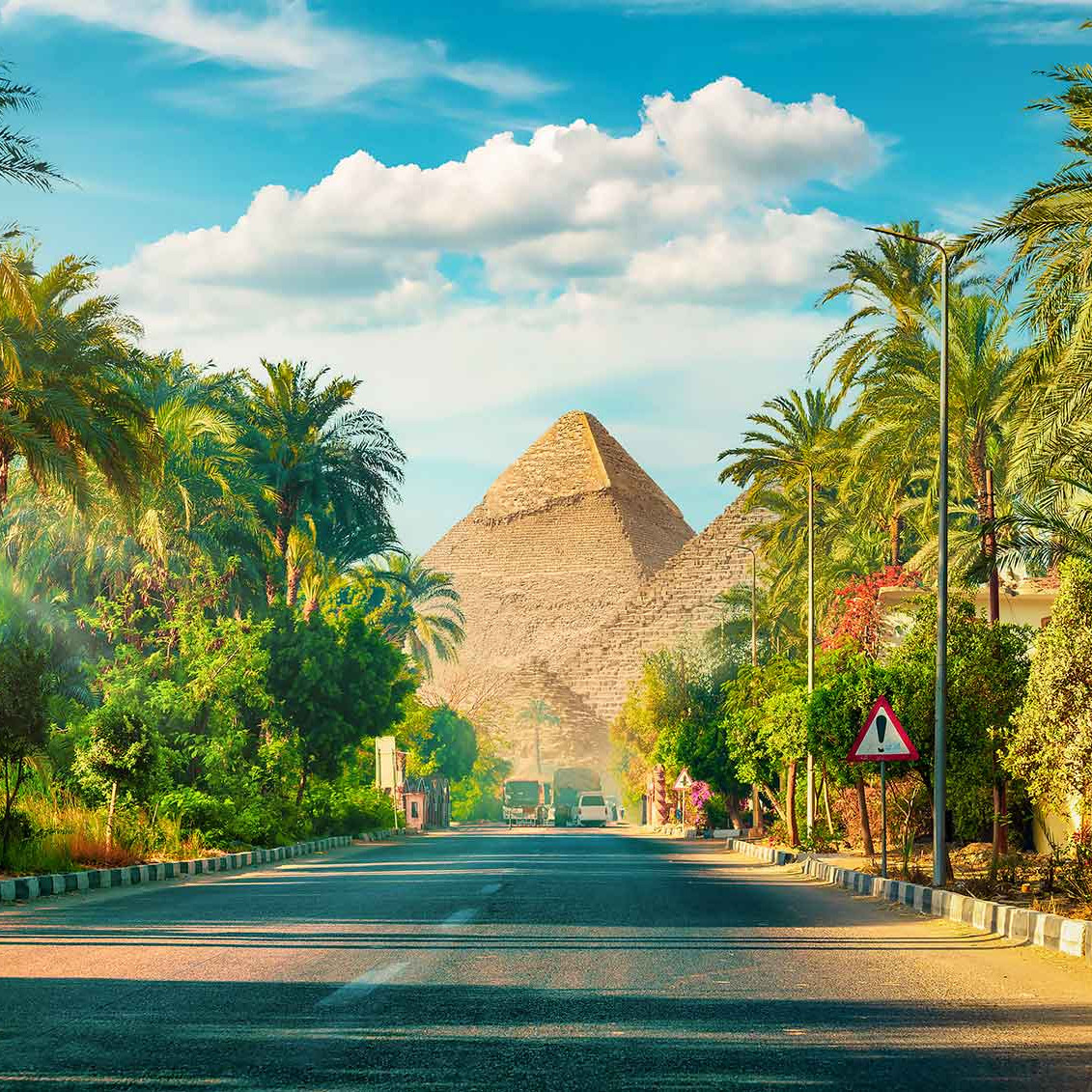Aswan
Discover the Soul of Southern Egypt
Located along the banks of the Nile River, Aswan boasts stunning landscapes, from the iconic Aswan High Dam to the serene islands dotting the river. Rich in culture and heritage, this ancient city is home to magnificent temples, bustling markets, and vibrant communities, making it a must-visit destination for travelers seeking to experience the enchanting allure of Egypt’s past and present.
History of Aswan
Aswan has been a strategic settlement since pharaonic times. In fact, it marked the southern frontier of Ancient Egypt and was known as Swenett—meaning “trade”—because it was the gateway to Africa, playing a significant role in commerce and culture throughout the Pharaonic, Greco-Roman, and Islamic periods. The region’s granite quarries supplied the stone for many of Egypt’s famous obelisks, temples, and statues.
Today, the city is a living museum. Ancient relics sit beside modern life, and everywhere you turn, there’s a story carved into stone. The desert meets the Nile in striking contrast, offering some of the most photogenic landscapes in the country.
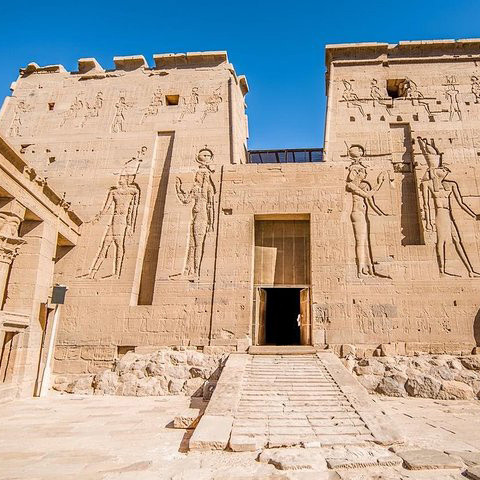
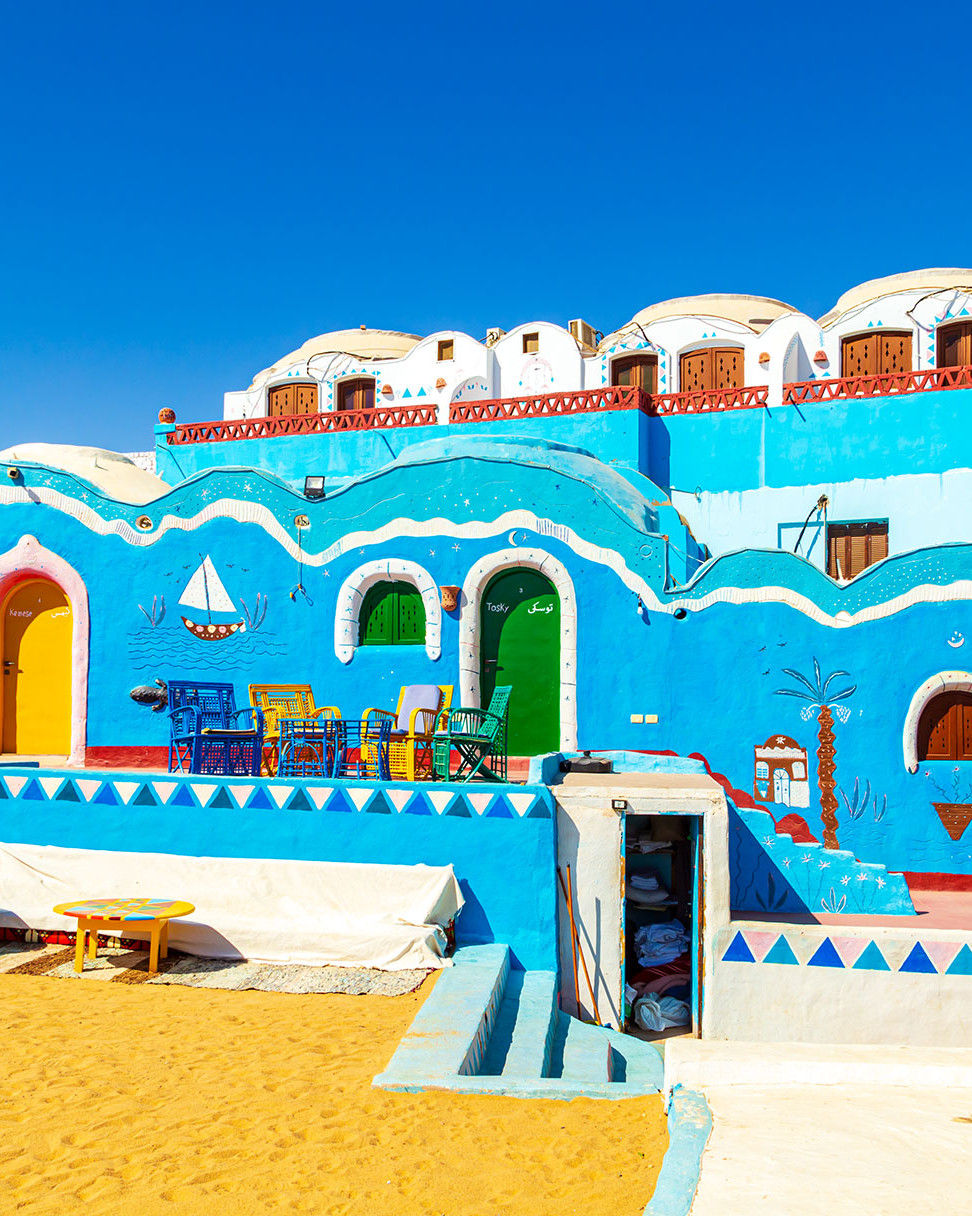
Embrace Nubian Culture
When you visit Aswan, you’ll quickly notice a cultural differece from the rest of Egypt. That’s thanks in large part to the Nubians—an indigenous ethnic group with a rich history, vibrant traditions, and deep roots in southern Egypt and northern Sudan.
Nubians have lived along the Nile for thousands of years, long before the pharaohs built their pyramids. Their ancient kingdoms—like Ta-Seti, Kerma, and later Kush—once rivaled Egypt in power, trade, and culture. In fact, during the 25th Dynasty, Nubian kings ruled all of Egypt as pharaohs.
The region between Aswan and Khartoum (Sudan’s capital) is known historically as Nubia. It’s a land of golden deserts, palm-fringed riverbanks, and strong community ties. Aswan is considered the heart of Egyptian Nubia. Visiting a Nubian village—whether on Elephantine Island or along the west bank—is more than just a photo op. It’s an opportunity to experience authentic Egyptian hospitality, vibrant music, hand-painted homes, and delicious home-cooked meals.
Why Visit Aswan?
- Cultural Richness: Aswan is the heart of Nubian heritage in Egypt, offering a window into one of the country’s oldest and most colorful cultures.
- Less Crowds, More Peace: Unlike Cairo or Luxor, Aswan is calmer, more relaxed, and often blissfully free from tour bus chaos.
- A Base for Adventure: From here, you can explore some of Egypt’s most iconic landmarks, like Abu Simbel and Philae Temple, or take day trips to islands, gardens, and even the Western Desert.
Getting Around
Feluccas (traditional sailboats) are the most charming way to get around the Nile and visit nearby islands. Taxis and tuk-tuks are available in the city, and most hotels can help arrange tours and drivers for longer day trips.
Best Time to Visit Aswan
October through April is ideal. The weather is cooler and more comfortable for exploring. Summers can be extremely hot, with temperatures soaring above 100°F (38°C), so plan accordingly.
Must-see Attractions & Things to do in Aswan
Aga Khan Mausoleum
Discover the peaceful Aga Khan Mausoleum in Aswan, Egypt. Learn about its history, significance, and how to visit this serene landmark...
The Unfinished Obelisk in Aswan
Discover the Unfinished Obelisk in Aswan—an ancient granite monument frozen in time. Learn about its fascinating history, how it...
The Temple of Isis at Philae: A Sacred Gem of Aswan
Discover the Temple of Isis at Philae in Aswan, Egypt—a beautifully preserved ancient site dedicated to one of Egypt’s most powerful...
Aswan High Dam: Egypt’s Modern Marvel on the Nile
Discover the Aswan High Dam, a massive engineering project on the Nile River that transformed Egypt’s agriculture, economy...
Aswan Botanical Garden
Discover the Aswan Botanical Garden, a serene island oasis on the Nile filled with exotic plants, rare trees, and peaceful walking paths...
Elephantine Island: Ancient Ruins, Nubian Culture, and Nile Tranquility in Aswan
Discover Elephantine Island in Aswan, Egypt—a peaceful Nile island filled with ancient ruins, colorful Nubian villages, and timeless charm...
The Abu Simbel Temples: Monuments of Majesty in the Desert
Explore the stunning Abu Simbel Temples near Aswan, built by Ramses II to honor himself and Queen Nefertari. Learn about...
Sailing on the Nile river: A Journey Through Egypt’s Lifeline
Discover the unforgettable experience of sailing along the Nile River in Egypt. Learn what to expect, the best ways to cruise, and why...
Wondering what to do in Aswan? Check out the 9 Best things to do in Aswan!
Are you ready to start discovering Aswan?
Latest stories from Egypt
Beyond Tahrir: Exploring Cairo’s Grand Egyptian Museum
June 17, 2025
Discover the Grand Egyptian Museum’s opening plans, see how it compares to the old Egyptian Museum in Tahrir Square, and why it marks...
Visa requirements for Egypt
July 25, 2024
12 Essential Egypt Travel Tips for 2025
July 23, 2024






